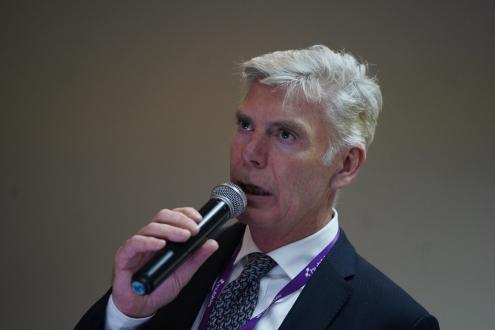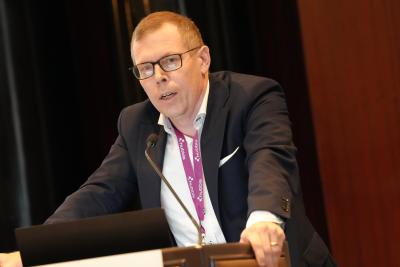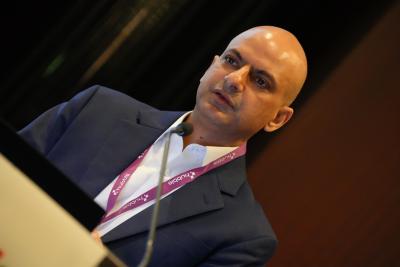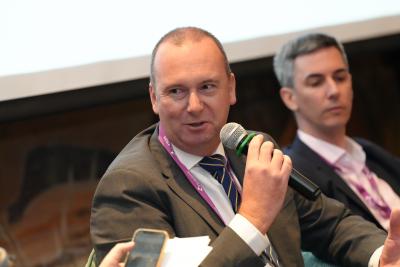Why does the world need Wealth advisors? Insights from Saxo Bank’s Head of Institutional Clients in MENA
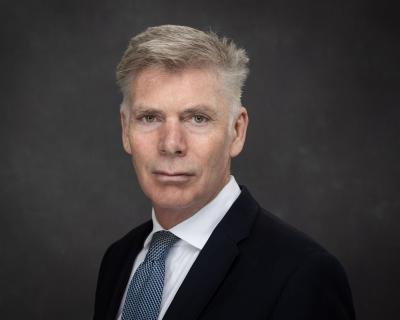
Apr 13, 2023
Nicholas Wright is Regional Head of Institutional Business for MENA at Saxo Bank. He addressed the question of why the world needs wealth management advisors at the Hubbis Independent Wealth Forum in Dubai no March 15. He told guests that advisors and private wealth managers face an increasingly challenging external operating environment. He said the wealth industry needs to help clients understand their own investment mentality, as well as the emotional responses that volatile markets can potentially elicit. He aimed to explain how, in his view, advisors can become more client-focused and create a better financial future for their clients. And he looked at the modern advisor’s digital toolset to help drive better digital communication throughout the investment life cycle, to improve central portfolio management and to leverage AI as a means of enhancing advice and managed solutions.
Wright told delegates that his role at Saxo is working with partners such as were represented in the room at the event, namely banks, external asset managers, family offices, and others.
He then highlighted a variety of key trends they see in the MENA markets. Covid-19 produced a huge surge in demand for digital investing & trading platforms. There is increased competition from Robo Advisors and Fintech. Client expectations are changing, and regulations is intensifying and evolving. There is a shift towards fee-based models and towards passive investing. The Mass Affluent sector has been growing apace, bringing demand for digital solutions and a more global approach to their portfolios.
Indeed, he reported that MENA mass affluent expansion is the most robust in the world, growing at 7.8% annually compared with 4.7% on average. He said mass affluent clients now represent 25% of the population in the GCC, but has been substantially ignored by banks, and most external asset managers, even though they are now investing more and with greater diversity.
The lower range of the HNW market (upper middle segment) with some USD1 million to USD5 million in assets represents some 5% of the GCC market, but is not well served in the region, especially in markets like Saudi Arabia, where access to good products and advice is very limited.
He observed that in the major mass affluent market and this upper middle segment, investors are keen on capital growth as well as preservation, while in higher wealth categorises preservation is more important. The mass affluent segment has many and diversifying needs and expectations, and to serve them the banks and other competitors are using more and more digital or Hybrid tools that scale.
The true HNW segment of USD5 million and above and the UHNW segment together are few in number but huge in percentage of the investment assets of the region. They are served by virtually every single private bank from around the world, by alternative asset management firms, by family offices, by the wealth arms of full-service banks, by the external asset managers and also by brokers.
In this upper tier of wealth they need more personalised service, they need a more institutional product offering, and they need digital solutions aligned with access to high quality advisors and support. “As the world becomes more complex, so demand for advisors is rising.,” he said. “There is so much information and complexity that most investors cannot handle and that is good news for the advisory community.”
But how then can the advisors themselves handle all these levels of complexity, from globalisation to market vacillations to regulatory and tax intensification, to geopolitics, currency risk and so forth? And how can they be client centric at the same time?
The answer of course is it is vital to reduce those mundane, laborious tasks to free up RMs, increasing the value-added time committed to the actual end clients, and cutting out as much of the non-value-added work. A study by PwC had, for example, highlighted how 60% of the time of the RMs was spent on what are essentially non-productive tasks, such as resolving issues and compliance.
The wealth management industry is therefore urgently addressing three core areas of pressing challenges - operational & productivity challenges, business ‘success’ challenges and relational challenges.
In the first category, there are tedious onboarding processes, manual asset allocation and portfolio construction processes, and a lack of holistic visibility of clients’ entire financial and life situations.
Business ‘success’ challenges include intense and rising competition for client acquisition, critical evaluation on alpha generation, and ever lower trading commissions and investment cost pressures across the industry.
And amongst what he called relational challenges, providers are seeking to enhance the client experience and the level of satisfaction with banks and brokers, and boost transparency and timely reporting to the end-clients.
As these challenges are addressed, so RMs and advisors can handle more clients, and/or can be more productive with their existing clients, as they are freed up from the mundane and empowered by technologies to help them understand more about the market, about the products and about their clients.
He closed the talk by reporting that it is precisely on all these key areas that Saxo is working with its institutional clients in the wealth industry.
Saxo Bank – A Snapshot
Saxo Bank first opened its doors in the UAE in 2009. As a provider of multi-asset trading and investment, Saxo’s vision is to enable people to fulfil their financial aspirations and make an impact. Saxo’s user-friendly and personalised platform experience gives investors exactly what they need, when they need it, no matter if they want to actively trade global markets or invest into their future.
Founded in 1992, Saxo Bank was one of the first financial institutions to develop an online trading platform that provided private investors with the same tools and market access as professional traders, large institutions, and fund managers. Saxo combines an agile FinTech mindset with close to 30 years of experience and track record in global capital markets to deliver a state-of-the-art experience to clients.
The Saxo Bank Group holds four banking licenses and is well regulated globally across 16 offices. Saxo offers clients around the world broad access to global capital markets across asset classes, where they can trade more than 40,000 instruments in over twenty-five languages from one single margin account.
The Saxo Bank Group also powers more than 135 financial institutions as partners by boosting the investment experience they can offer their clients via its open banking technology.
Headquartered in Copenhagen, Saxo Bank’s client assets total more than USD80 billion and the company has more than 2,000 financial and technology professionals in financial centres around the world including London, Singapore, Amsterdam, Shanghai, Hong Kong, Paris, Zurich, Dubai, and Tokyo

Regional Head of Institutional Business at Saxo


